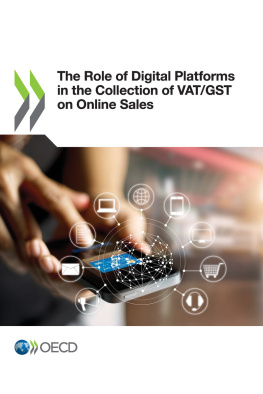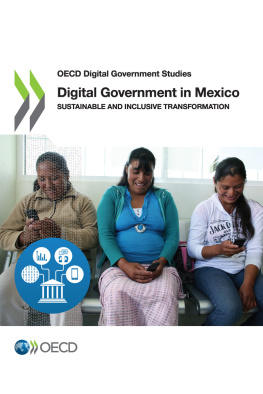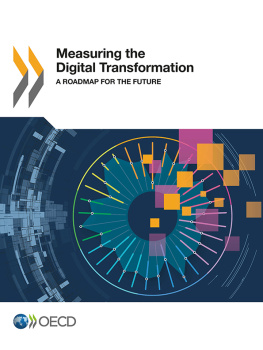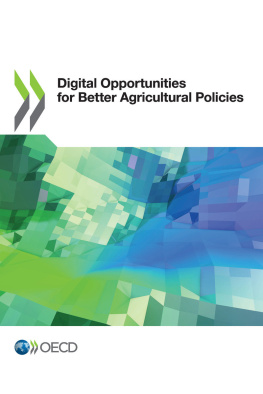OECD - The Role of Digital Platforms in the Collection of VAT/GST on Online Sales
Here you can read online OECD - The Role of Digital Platforms in the Collection of VAT/GST on Online Sales full text of the book (entire story) in english for free. Download pdf and epub, get meaning, cover and reviews about this ebook. year: 2019, publisher: OECD Publishing, genre: Children. Description of the work, (preface) as well as reviews are available. Best literature library LitArk.com created for fans of good reading and offers a wide selection of genres:
Romance novel
Science fiction
Adventure
Detective
Science
History
Home and family
Prose
Art
Politics
Computer
Non-fiction
Religion
Business
Children
Humor
Choose a favorite category and find really read worthwhile books. Enjoy immersion in the world of imagination, feel the emotions of the characters or learn something new for yourself, make an fascinating discovery.
The Role of Digital Platforms in the Collection of VAT/GST on Online Sales: summary, description and annotation
We offer to read an annotation, description, summary or preface (depends on what the author of the book "The Role of Digital Platforms in the Collection of VAT/GST on Online Sales" wrote himself). If you haven't found the necessary information about the book — write in the comments, we will try to find it.
OECD: author's other books
Who wrote The Role of Digital Platforms in the Collection of VAT/GST on Online Sales? Find out the surname, the name of the author of the book and a list of all author's works by series.
The Role of Digital Platforms in the Collection of VAT/GST on Online Sales — read online for free the complete book (whole text) full work
Below is the text of the book, divided by pages. System saving the place of the last page read, allows you to conveniently read the book "The Role of Digital Platforms in the Collection of VAT/GST on Online Sales" online for free, without having to search again every time where you left off. Put a bookmark, and you can go to the page where you finished reading at any time.
Font size:
Interval:
Bookmark:
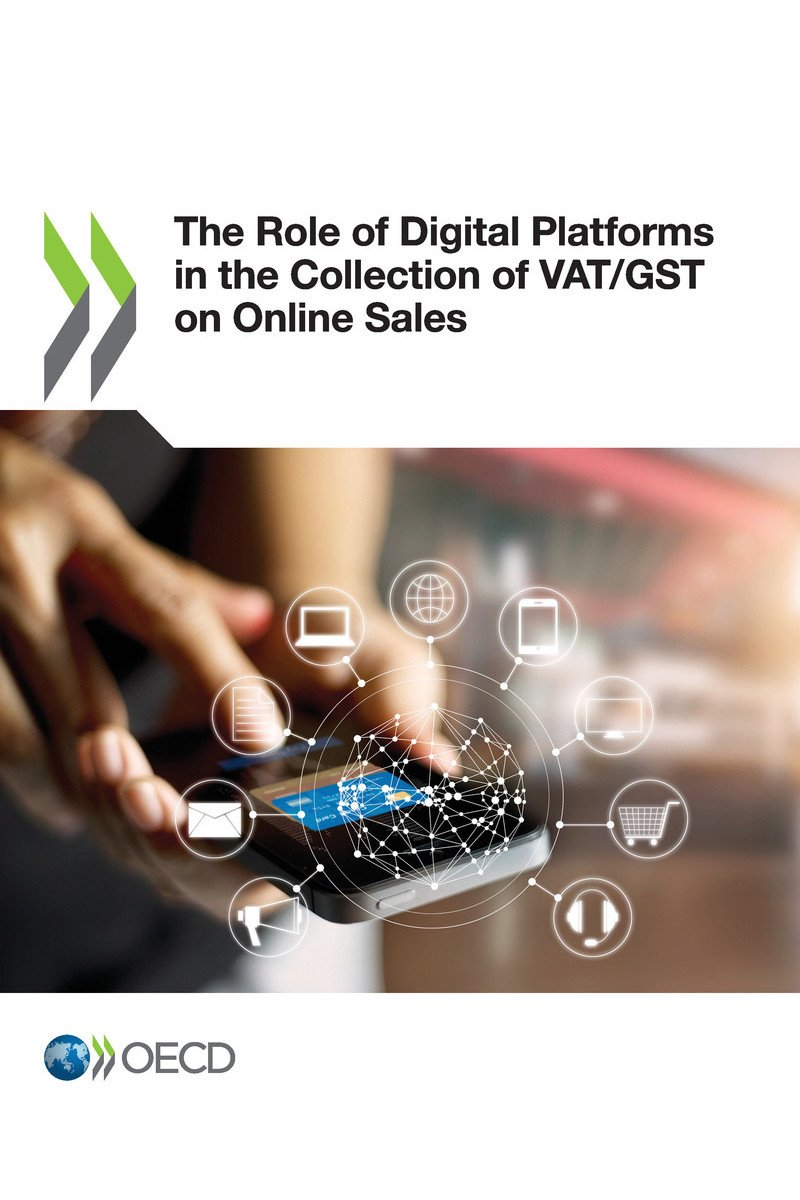
OECD (2019), The Role of Digital Platforms in the Collection of VAT/GST on Online Sales , OECD Publishing, Paris, https://doi.org/10.1787/e0e2dd2d-en .
The OECDs work on Value Added Taxes (VAT)/Goods and Services Taxes (GST) has in recent years primarily focused on the development of internationally agreed standards and recommended approaches for the consistent, efficient and effective application of national VAT/GST systems in the context of an increasingly digitalised and globalised economy.
These standards include the recommended rules and mechanisms to address the challenges of collecting the VAT/GST on digital sales, which had been identified in the context of the OECD/G20 Project on Base Erosion and Profit Shifting (the BEPS Project). This report, The Role of Digital Platforms in the Collection of VAT/GST on Online Sales is the latest addition to this work.
Electronic marketplaces and other digital platforms that facilitate online transactions between buyers and sellers play a central role in the continuous strong growth of online trade. Evidence suggests that two-thirds of all cross-border e-commerce sales of goods are made through online marketplaces. It has become increasingly obvious that this reality presents significant opportunities for a more efficient and effective collection of VAT/GST on online sales of goods, services and intangibles, particularly sales to private consumers. An increasing number of jurisdictions started work on possible measures to involve digital platforms in collecting VAT/GST on online sales. The jurisdictions that effectively implemented these measures reported positive outcomes in facilitating and improving compliance and securing tax revenue. Against this backdrop, the OECD was requested to develop internationally agreed guidance on measures for the efficient involvement of digital platforms in the VAT/GST collection on online sales that can be implemented consistently across jurisdictions.
Accordingly, this report provides practical guidance to tax authorities on the design and implementation of a variety of solutions for involving e-commerce marketplaces and other digital platforms in the effective and efficient collection of VAT/GST on digital trade of goods, services and intangibles. It includes new measures to make digital platforms liable for the VAT/GST on sales made by online traders through these platforms, along with other measures such as data sharing and enhanced co-operation between tax authorities and digital platforms. It builds further on the solutions for the effective collection of VAT/GST on digital sales presented in International VAT/GST Guidelines and Addressing the Tax Challenges of the Digital Economy, Action 1 2015 Final Report . It also complements the report on the Mechanisms for the Effective Collection of VAT/GST , which was delivered in 2017.
This report has been developed through an inclusive process, involving representatives from OECD members and from a large number of partner countries as well as through the active engagement of the business community. It was endorsed by the representatives from over 100 jurisdictions and international and regional organisations as well as from the business community at the fifth meeting of the Global Forum on VAT in Melbourne on 20-22 March 2019.
This report was approved by the Committee on Fiscal Affairs on 10 May 2019 and prepared for publication by the OECD Secretariat.
This report, The Role of Digital Platforms in the Collection of VAT/GST on Online Sales , was developed by the OECD to complement its report Mechanisms for the Effective Collection of VAT/GST . The latter report, which was delivered in 2017, provides detailed guidance for the consistent and effective implementation of the mechanisms for the collection of VAT/GST on online sales as recommended in the International VAT/GST Guidelines and in Addressing the Tax Challenges of the Digital Economy, Action 1 2015 Final Report of the OECD/G20 Base Erosion and Profit Shifting (BEPS) Project.
Against the backdrop of the continuous strong growth of online trade, the OECD's Working Party No.9 on Consumption Taxes (WP9) consisting of VAT/GST policy officials from OECD members and Partner countries, signalled an urgent need to continue work on possible approaches to further increase the efficiency of VAT/GST collection, particularly on online sales to final consumers (business-to-consumer or B2C trade). WP9 requested in particular that the possible involvement of digital platforms in the collection process be explored, recognising that such platforms may significantly enhance the effectiveness of VAT/GST collection given their important role in generating, facilitating and/or executing online sales. A number of jurisdictions indeed have implemented measures to involve digital platforms in collecting VAT/GST on online sales and reported positive outcomes in securing tax revenue. Other jurisdictions are considering similar reforms.
Against this background, this report analyses the possible roles of digital platforms in supporting the collection of VAT/GST on online sales of goods and services/intangibles, and provides guidance on possible implementation measures. It also recalls the range of other measures beyond possible VAT/GST obligations for digital platforms that tax authorities can implement to further enhance the effectiveness of VAT/GST collection on online trade.
This report does not try to define the term digital platforms, as it is a concept that is likely to evolve over time. They have notably been denominated platforms, (online) marketplaces, or intermediaries by the jurisdictions that have involved such actors in the collection of VAT/GST on online sales, or are considering doing so. This report uses the term digital platform as a generic term to refer to the actors in online sales that carry out the functions that can be considered essential for their involvement by tax authorities in the collection of VAT/GST on online sales. These can generally be described as the platforms that enable, by electronic means, direct interactions between two or more customers or participant groups (typically buyers and sellers) with two key characteristics:
Font size:
Interval:
Bookmark:
Similar books «The Role of Digital Platforms in the Collection of VAT/GST on Online Sales»
Look at similar books to The Role of Digital Platforms in the Collection of VAT/GST on Online Sales. We have selected literature similar in name and meaning in the hope of providing readers with more options to find new, interesting, not yet read works.
Discussion, reviews of the book The Role of Digital Platforms in the Collection of VAT/GST on Online Sales and just readers' own opinions. Leave your comments, write what you think about the work, its meaning or the main characters. Specify what exactly you liked and what you didn't like, and why you think so.

